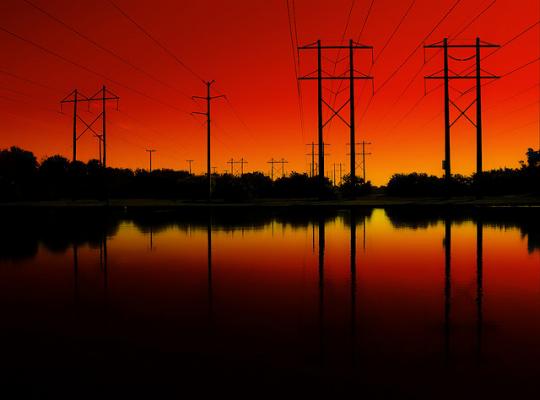 For nearly three-fifths of the world population, the lack of access to energy is a major challenge to economic development and poverty reduction.
For nearly three-fifths of the world population, the lack of access to energy is a major challenge to economic development and poverty reduction.
Increasing cross-border trade in electricity can play a major role in helping overcome these challenges. Trade in electricity can help bring down energy prices, mitigate against power shocks, relieve shortages, facilitate decarbonization and provide incentives for market extension and integration.
Yet, countries have been reluctant to trade electricity across borders. Global exports of electricity are currently around 3 percent of total production. This is an anomaly in the energy sector. Think of oil. Roughly 64 percent of all oil produced is traded between countries.
A recent working paper published by the World Bank looks at the institutional arrangements of regional power pools in both developing regions and those in developed countries. In understanding how the regional integration of electricity markets has developed, the paper is able to draw useful lessons for the promotion of future trade arrangements.
If you live in an advanced economy, your national electricity grid likely developed over time. Local utilities grew to realize there were substantial cost and quality of service advantages to horizontal integration and interconnection between service areas. These companies began to cooperate, creating common power pools. Electricity loads in one supply area no longer had to be balanced with electricity generation within that same area. Regions with low cost generation resources could become net exporters of power, while electricity customers in high cost areas could benefit from cheaper imports.
This type of pooled system requires negotiated interchange agreements and the creation of a mechanism for dispatching electricity from point to point throughout a grid. This trade of electricity happens every day, in real-time. But getting to this point can be difficult.
Often a separate transmission system operator (TSO) is established to regulate electricity trade, like the National Grid in England and Wales. A TSO both owns the transmission infrastructure and operates the system.
In regions where multiple states or transmission systems are in place, it is very difficult to establish a single TSO. Instead, states often create independent system operators (ISO) or regional transmission organizations (RTO) where system operation is separated from transmission asset ownership. The ISO or RTO operates the system in real time and is tasked with ensuring non-discriminatory access to the grid for individual generators.
Today, we are witnessing a rapid rise in the number of wholesale power markets being introduced in developing regions. Vertically integrated utilities that once held monopolies have been unbundled, creating renewed potential for greater cooperation.
Certain preconditions must be in place to realize this potential. In the study of six major regional power pools—in Africa, Europe and the Americas—it is clear that openness to trade and a broader pre-commitment to free trade are critical. Five of the six cases involved countries that already had free trade agreements in place, and trade in electricity was promoted as part of the wider trade development agenda.
Part of the need for a specific trade agreement to be in place is heightened by the fact that WTO rules do not clearly stipulate conditions for electricity trade. It’s a gray area, partly because it combines production—a good—with transmission—a service—and involves a complex set of environmental and energy security policy objectives.
The physical infrastructure is also essential. And this is an area where the World Bank Group and other multilateral development agencies can play a leading role.
Adequate cross-border transmission capacity is critical. However it’s not just the physical interconnection at borders. Because electricity flows in loops, national systems must be able to handle a higher load and its fluctuations.
Multilateral agencies can play—and have—a big role in studying the feasibility of transmission capacity expansion and, in some cases, financing it. At the national level, there are always practical and political problems in allocating the gains of any expansion that must be overcome.
This is yet another reason why having strong, efficient, and independent institutions to regulate these systems is so important. Whether a TSO or ISO or a hybrid arrangement, an integrated power pool needs an efficient operator who can oversee and sanction participants. Enforcement can be especially difficult, as countries are often unwilling to bind themselves to a common enforcement mechanism.
This regulatory aspect must be factored into market design. A well-designed power pool market will result in less cross-border enforcement actions.
Establishing a day-ahead market or a real-time market can also help facilitate more trade and greater market efficiency. Bidding mechanisms provide flexibility and promote more efficient use of resources.
There are a number of other critical aspects of power pool arrangements that merit further research. Ensuring such a system doesn’t encourage the exploitation of dirty low cost fossil fuels like coal, ensuring it doesn’t worsen initial distortions in regional markets, and ensuring distributional effects do not overburden certain jurisdictions are a few key concerns that need to be addressed.
However, it is clear that there is a crucial role for multilateral agencies like the World Bank to play in facilitating both the infrastructural expansion and institutional design of power pools in developing regions. Such systems can lead to further market integration and help ensure the energy access necessary for development.



Join the Conversation